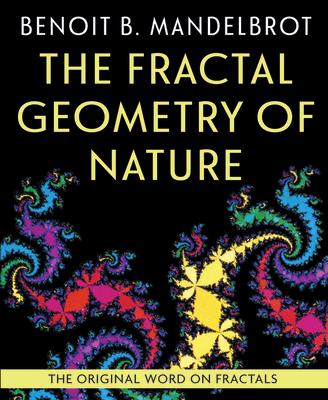The Essential Guide that Introduced Fractals to the World
Explore the wondrously complex repeating shapes of the natural world in The Fractal Geometry of Nature. Written in a style that is accessible to a wide audience, computer scientist, professor, mathematician, economist, and visionary Benoit B Mandelbrot's fascinating work has inspired popular interest in the geometry inherent in the natural world.
Unlike the squares, circles, spheres, and cones of fundamental geometry, nature has rough edges and no straight lines or perfect curves. Mandelbrot observed that, even with this roughness, there still exists a kind of symmetry, which he dedicated his work to document and study. This became the basis for his development of a new kind of geometry; indeed, he coined the term "fractal."
Mandelbrot spent 35 years with IBM, which allowed him access to the level of computing power that would enable him to manipulate computer-generated images and develop his theory of a geometry found throughout our natural environment. He was among the first to use computer graphics to illustrate and test these kinds of concepts, demonstrating that natural phenomena which appear to be rough or chaotic actually have a certain degree of order and predictability.
This definitive overview builds on Mandelbrot's 1977 work, Fractals: Form, Chance and Dimension (also published by Echo Point Books), revealing an in-depth look at this still-emerging field. Richly illustrated and presented in an engaging manner which embraces geometric and visual dimensions interspersed with aspects of theory, this book will inspire curiosity and wonder in artists, mathematicians and naturalists alike.
This book is also available from Echo Point Books in paperback (ISBN 1648370411).
Be sure to check out Benoit Mandelbrot's other definitive work, also availabe from Echo Point books: Fractals: Form, Chance and Dimension (use the web address https: //www.amazon.com/dp/1635619025/).
